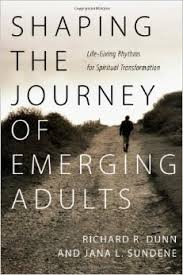
Photo Courtesy of Aaron Robert Photography. Copyright 2015. www.aaronrobertphotography.com
He buys the ring. He asks her parents for permission. He gets down on one knee. He asks the question. But what does it really change? What is the purpose of engagement?
A betrothal (or engagement) period has been around for many centuries, and is well documented during the time of the Old and New Testament. In Matthew 1:18-21, we are told that Joseph and Mary were betrothed. Betrothal was, “a binding contract established between two families and sealed by the exchange of gifts. During this period the couple did not live together; sexual relations with each other at this stage was regarded as equivalent to adultery.” (Reference) A betrothal was so sacred that unfaithfulness during this period was punishable by death.
Engagement is a vital step for the health of a life-long relationship. So if you think a ring is in your future, here are the four purposes for the engagement period.
1. Prepare our communities.
Engagement is a time when the couple’s community is alerted to the couple’s commitment. One emerging adults said, “The purpose of engagement in my mind is a formal declaration of intent.” It is the formal act whereby a couple announces to parents, relatives, and friends that they are taking active steps towards marriage.
Weddings were never meant to be a private affair, but something to be supported by an entire community. Community support for the wedding is important because marriages are not lived out in isolation, but always exist within the framework of community. As Western society breaks down community in favor of an individualistic lifestyle, our perspective of marriage has been twisted into a private matter lived out within the confines of our suburban home guarded by the fences between us. We must begin realize that a marriage is strengthen by strong public ties to others.
2. Prepare for life together
Engagement is a time when you begin to make preparations to live together. As a couple, you begin how to make decisions together, learning how to compromise, and to resolve conflict. Questions that you need to answer include:
- Where will we live?
- Will we have money?
- What will we eat?
- What will we drive?
However, your questions must go deeper than the practical everyday decisions. Your preparation must include preparing yourself emotional, mentally, and physically for a healthy marriage. One emerging adult said, “There are certain parts of you (deep spiritual and emotional things) that aren’t necessarily healthy to share with someone who you are just dating, no matter how long. Engagement is a great period of transition, where for the first time, there is a promise of forever attached to a relationship, which allows you to move towards each other spiritually and emotionally.” I believe that there are not just physical boundaries that couples should observe, but emotional and spiritual boundaries that should not be crossed until marriage. (For more on this, see Premature Intimacy.)
Faced with such decisions, not all engagement periods are easy, and many couples find themselves in need for a third reason for engagement – counseling.
3. Premarital Counseling

Photo Courtesy of Aaron Robert Photography. Copyright 2013. www.aaronrobertphotography.com
One EA says that premarital counseling, “pushed us to discuss the harder topics.” Dating and engaged couples often stay away from problem topics either to keep everyone happy, or because they are unaware of relational landmines surrounding them. Premarital counseling will examine issues in your relationship including: communication, conflict, finances, marital roles, and past family dynamics.
Although you may feel overwhelmed preparing for the ceremony, good pre-marriage counseling is worth every minute. (Many states give a discount on the marriage license to couples who spend time in premarital counseling.) Notice that I included the word “good.” Be selective about who you choose to do your counseling. The main factors for choosing a counselor should be: relational (Do they understand people?), comfortable (Do I feel as if I can be authentic?), experienced (Do they any experience working with marriage?), availability (Will they care about me and my partner?), and location (Are they too far away?).
4. Plan the Wedding

Photo Courtesy of Aaron Robert Photography. Copyright 2013. www.aaronrobertphotography.com
The last reason for the engagement period is to plan the wedding. While it is the most obvious, it is not the most important. No one will remember the décor or food at your wedding; so don’t let these details keep you from enjoying the other aspects of your engagement. It is hard work to plan a wedding, but many families cave to societal pressures, and make it harder than it needs to be.
As you approach engagement, please know that the process of becoming one may be difficult. One EA says, “Engagement has proven for both of us to be the time that we’ve both experienced our greatest doubts and also our greatest joys with one another. However, there’s a new level of safety in the fact that we’re both on the same page preparing to commit to one another that has allowed for deeper honesty (even in the hard truths and confrontations) and has resulted in a greater spiritual and emotional connection.”
 Dr. G. David Boyd is the Managing Director of EA Resources. He is supported by a group of emerging adults who speak into his articles in order to help others. If you are interested in joining his team of contributors, you can contact him at gdavid@earesources.org.
Dr. G. David Boyd is the Managing Director of EA Resources. He is supported by a group of emerging adults who speak into his articles in order to help others. If you are interested in joining his team of contributors, you can contact him at gdavid@earesources.org.






















 I found a great
I found a great